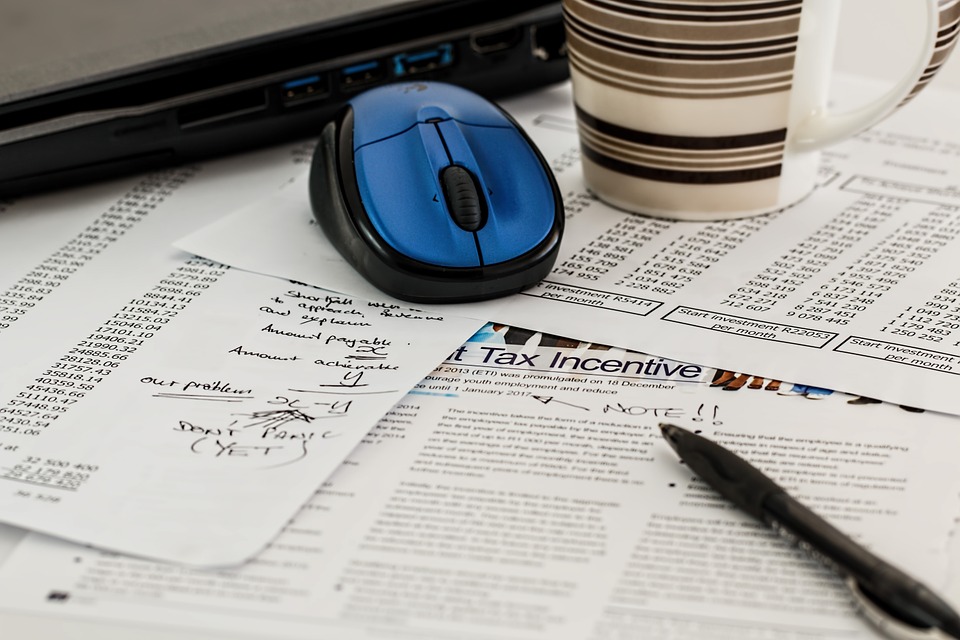1099s and Freelancers: Tips to Keep You Stress-Free at Tax Time
Finances
Tax season can be overwhelming for first-time freelancers filing self-employed taxes. By focusing your efforts on good financial habits to keep all year, and learning which deductions you may be eligible to receive, youâll save yourself time, money and countless headaches.
Deductions to Consider
Deductions are your best friend. No matter what type of freelancer you are, almost everything you do for work can be deducted if your situation fits. Here is a short list of deductions a freelancer may be able to claim.
Office Space
This is the main deduction for most freelancers, especially those who work from home. This deduction allows you to claim a portion of your utilities, rent or mortgage, and homeownerâs insurance as part of your business, as long as your office space is used solely for that purpose.
For decades, this deduction was hard to claim. In 2013, the IRS made getting the home office deduction easier. With the âsimplified method,â as described by Fast Company and The Freelancerâs Union, you can calculate your home officeâs space by square foot to claim a deduction â $5 per square foot, up to $1,500 or 300 feet.
Business Travel Expenses
If you are a freelancer who travels for work or to meet with clients, you are eligible for travel deductions; this includes everything travel-related for your business â from airfare and hotel stays to car trips to meet with potential clients.
Keep in mind that special rules do apply for certain aspects, such as food and entertainment. The Money Crashers website reports that only 50 percent of expenses can be deducted.
Research Materials
Few freelancers realize that research materials needed to complete a project can be deducted. Wise Bread has created a long list of eligible materials, and the rule of thumb is that if you use a reference material, such as a book, a magazine or information culled from a conference or cultural event, you can deduct that cost from your overall expenses. This deduction is critical for freelance writers and artists, who frequently purchase expensive reference materials for their libraries.
Educational Expenses
With the advent of online learning, freelancers are heading to online classes and master workshops in droves to improve their skill set in their chosen field. Any class that helps improve your business counts as a deduction, as does a workshop or an educational conference. Books and materials you need for those classes can count, too, as long as you finish the course and receive a certificate of completion.
Financial Habits to Keep All Year
To be ready for tax time, you must be diligent about keeping good financial habits throughout the year.
Keep every receipt from every purchase, and scan it into a record-keeping software to track your expenses and help you discern what is a business expense and what is personal. It will also simplify totaling up your deductions at the end of the year.
Another tip is to figure out how much you will have to pay in taxes based on what you make a year. Since your income may change from month to month, calculate income tax and any other taxes you may have to pay ahead of time, and set that money aside.
Being a freelancer is a rewarding experience, but it comes with responsibility as well, especially during tax time. Take the time to prepare all year, and it will be a simple task when itâs time to file.
Â
Banks arenât meeting your freelance needs? Sign up for a better banking experience here.
Worth your time
- Casino Online Prelievo Immediato
- Best Non Gamstop Casinos
- Non Gamstop Casinos UK
- Gambling Sites Not On Gamstop
- Casino Non Aams Legali
- Meilleur Site Casino Live
- Casino Sites Not On Gamstop
- Casino Sites UK
- Non Gamstop Casinos UK
- UK Non Gamstop Betting Sites
- Non Gamstop Casino
- UK Casino Not On Gamstop Self-exclusion
- Non Gamstop Casinos UK
- Non Gamstop Casino Sites UK
- Casinos Not On Gamstop
- Non Gamstop Casino UK
- Best Betting Sites UK
- Online Slots Sites UK
- Meilleur Casino En Ligne Avis
- Meilleur Casino En Ligne France
- Casino Not On Gamstop
- Casino Sites Not On Gamstop
- Non Gamstop Casino UK
- Casino Non Aams
- Casinos Not On Gamstop
- Siti Casino
- Casino En Ligne
- Casino Non Aams Sicuri
- Nouveau Site De Poker En Ligne
- ě ěě¸ěŚ ěë ěš´ě§ë ¸
- Migliore Casino Non Aams
- ě¨ëźě¸íë¤
- Meilleur Casino En Ligne
- Meilleur Casino En Ligne
- Casino En Ligne France
- Casino En Ligne
- Casino En Ligne Français 2026
- Casino En Ligne Argent RĂŠel France
- Casino Online Non Aams 2026
- Casino En Ligne




Leave a Reply